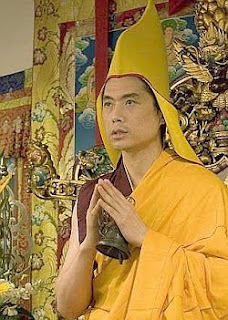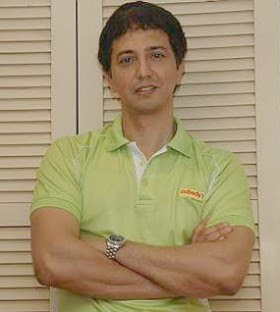
1. As an economist, which school of thought influences you most? Melissa York, KL
The economic principle that influences me the most as an economist is the concept of comparative advantage. Based on this, countries should concentrate on producing and exporting goods which they are more effective or efficient at that is the ones in which they have a “comparative advantage”. Conversely they should not try to make goods locally if other countries can make them better, and should instead import them. For the principle of comparative advantage to take full effect, there should be free trade. Over the last half century, free trade has expanded, in line with globalisation, and many economies have grown using this principle and are able to provide their citizens a better standard of living. Malaysia is one of them. However, progressive countries do not just depend on a legacy of comparative advantage such as natural resources; they create a competitive advantage. Dubai, for example, has created a niche as a regional hub for finance, transport and business by investing in infrastructure and importing workers.
2. I'm thinking of joining an investment bank as an economist, but was told that it can get quite boring. What's it like to be an economist? Manjit, PJ
The training of an economist enables him or her to assess a wide range of information, and report how it may affect an industry, a country, a region or any given set of stakeholders. The information will certainly contain numerical measures of value and rates of change, but often there are other very relevant qualitative inputs, such as legislation, opinions and social factors. That, for me, is what makes economics interesting as it delivers a fully rounded analysis of real use to guide companies, administrators and. lawmakers. For sure there is a lot of real practical advice that an economist can give an investment bank, such as how certain sectors of the economy will fare in future, what are the risks and opportunities. You will be at the forefront of decision-making and that is never boring.
3. People say the worst is over. But we still hear of problems coming from the United States and euro-zone economy. When will they recover and what do they mean to us? Ahmad Jalil, Penang
It is difficult to predict exactly when the global economy will recover. In any case, some sectors and countries will recover faster than others. The problem is that the world economy faces a number of systemic problems global imbalances, growth-based consumption, unrestrained financial liberalisation and unfettered capital flows. Global leaders are still unable to agree on how to solve them. However, all agree that the challenges will be more tractable if growth returns. We expect robust growth in China, India and other emerging countries to compensate for slow US recovery and the euro-zone sovereign debt overhang. As we are an open economy, Malaysia needs a healthy global economy to buy our exports. If not, we have to deploy more of our own resources to stimulate our economy. We are also likely to be affected by the response measures taken by other countries changes in global or regional interest rates and monetary policy may impact capital flows into or out of Malaysia, the ringgit exchange rate or Bursa Malaysia.
4. Which is more detrimental to an economy: inflation and recession? Why? Tabitha CC Boi, Penang
I am quite sure that an economy in recession is a worse place to be than one with inflation. In a recession prices fall, and that is good news (unless you are a producer) but the worst thing about a recession is that there are less jobs and weak demand so nobody can afford to buy goods or services. There will be excess capacity and nobody wants to invest because prices continue to decline. Getting out of a recession has proved in the past to be quite difficult. Usually the government will try to revive the economy by increasing public spending but since demand is weak, there may be no takers the so-called liquidity trap. On the other hand, a low level of inflation is quite tolerable and some think it essential for economic growth. If you mean excessive inflation, that is for sure very painful, but governments have learnt how to recognize when an economy is overheating and in danger of high inflation and have developed effective antidotes.
5. What would you consider to be the biggest failure in life? How did you get back on your feet? Susan Ang, Johor
In life there are many challenges I would not call them failures. I believe when a door closes, another one opens, because Allah SWT is most compassionate. It is then up to us to make the best of this new path. The future is not known to us, so the door that closed may not have been all that we expected of it, and the new path is in any case our rezeki.
6. How do you usually relax and unwind after work? Johan Ku, Malacca
Gardening, listening to music and having a massage (spa) help me to relax. I get great satisfaction when my plants grow well and I love the beautiful colours of flowers. Of course, music soothes tensions and likewise a good massage relieves the aches and pains.
7. Does Malaysia still have to depend on foreign direct investments to generate growth? Why and how best can we arrest the decline of Malaysia's appeal to foreign investors? Mat Salleh, PJ
We should continue to welcome foreign direct investment for the same reason that we have always welcomed it FDI provides economic activities and jobs. Most FDI has the additional attraction of new technology, expanding production networks and growing export markets. Other countries in the region and elsewhere are now much tougher competitors for FDI and can also provide many of the things that Malaysia has long offered. To continue to attract and sustain FDI, we have to add to the value proposition with skilled, productive and committed workers, a business friendly environment, clear and consistent rules and regulations, security, safety and no corruption.
8. In your opinion, how have the values of Malaysian youths changed over the last three decades? How will that affect our economy? Balasundram, Klang
The next generation will experience much faster and deeper economic changes than ever before. Global economic events will reach far beyond national boundaries and the next generation will have to learn, and unlearn and relearn many things in the course of their lives. Malaysian youths are now more aware of the need to preserve the environment, that talent is mobile and that financial facilities are available and tempting. They also have higher consumption needs. Technology, especially ICT, access to information and networking is a big part of their lives. These traits will shape the future of the Malaysian economy. For example, in the future, most economic transactions will be done on-line and credit cards or debit cards will almost totally replace cheques.
9. What would be the most glorious moment you've had in your career and why? Suzy H, Taiping
I found great satisfaction when in 1998, I joined the Working Group of the National Economic Action Council (NEAC), which was set up to respond to the Asian economic crisis. Prior to that I was an economics lecturer in Universiti Malaya. At the NEAC, I had a close up and personal view of the economic management of the country. Malaysia's response went against the conventional wisdom, and we were in a way rewriting the rules of how to manage a crisis. That was a unique experience and I am thankful for being given the opportunity.
10. Definitely much effort has been put into drafting the new economic model and economic transformation plan. What would be the biggest internal risk and external risk that could derail such grand plans that we have? Eugene Khoo, KL
The New Economic Model will achieve its goals if its strategies and policies are implemented effectively and if the rakyat are prepared to make changes. Private investments have to take a lead in generating economic activities. Structuring of subsidies and putting in a price system that reflects the true value of resources will mean adjustments to our economic activities. I also hope the transformation of our education system will produce the human capital required. The world economy will have its ups and downs and I hope we can manage these fluctuations well. The gains we make should also be benchmarked with other countries because many of our competitors are progressing faster than us.
TS








